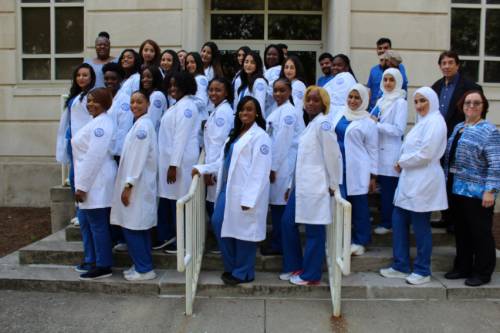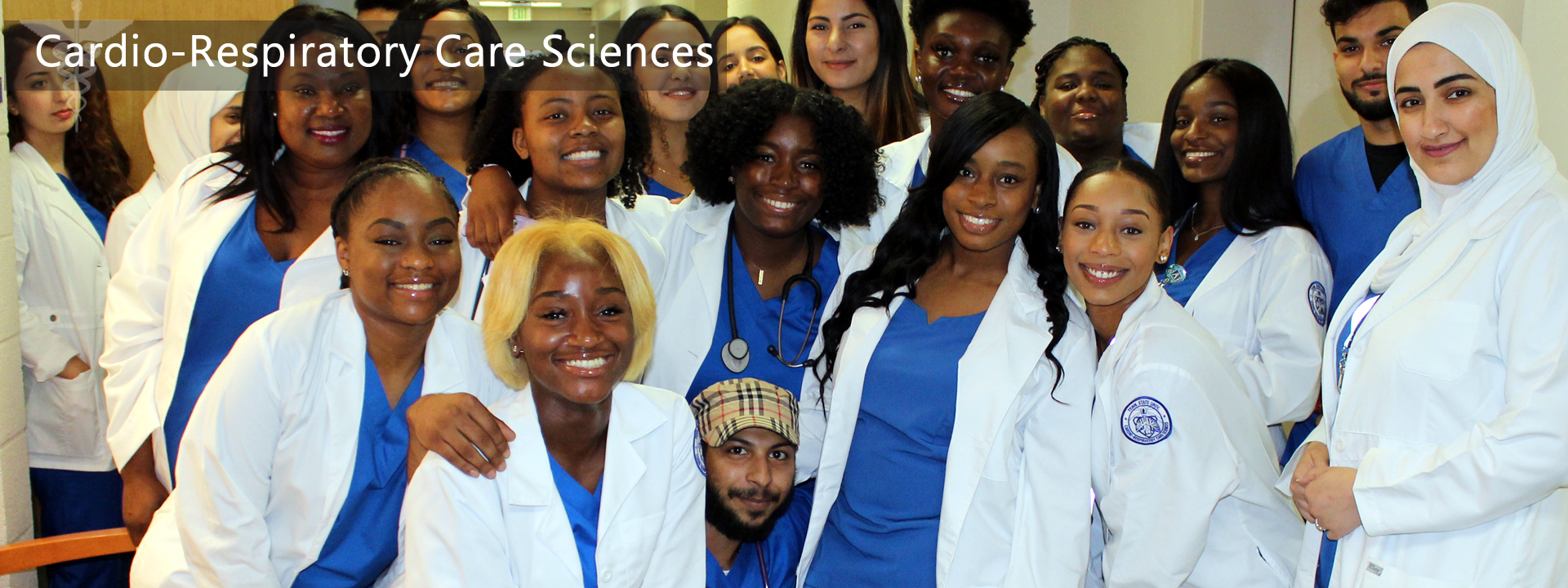- Home >
- Cardio-Respiratory Care Sciences
- > Admissions Procedure

Application Requirements and Procedure
Students who wish to pursue the Bachelor of Science with a major in Cardiorespiratory Care Science (CRCS) must apply to the CRCS Admissions Committee for acceptance. Students must be formally admitted to the Cardiorespiratory Care Science Program in order to take professional courses that begin in the junior year. Applications for admission are accepted from students who meet the following application requirements:
- Admission to Tennessee State University.
- A minimum high school grade point average of at least 2.5 on a 4.0 scale. Students should have taken either the ACT or the SAT exam. These scores should be provided to the department if they have not been provided to the University.
- One year of high school algebra, biology, and chemistry.
- Completion of the first two years of the CRCS curriculum with a grade point average of at least 2.5 on a 4.0 scale.
- A "C" or better grade in supporting science courses and math courses.
- Two letters of recommendation from instructors who have taught the applicant.
- An interview with the CRCS Admissions and Retention Committee or its designee (An interview does not automatically guarantee admission into the program. The Admission process is very competitive)
- Students must demonstrate that they have some aptitude in the field and the ability to perform essential respiratory care functions.
All applicants will be screened by the Cardiorespiratory Care Science Admissions and Retention Committee and will be advised of the final decision regarding acceptance into the program by a representative of the committee.
Criminal Background Check and Drug Screening:
A specified drug screen and a designated criminal background check including both the state and federal levels are a requirement for student placement within clinical agencies. Based on the results of these checks, an affiliated clinical agency or site may determine to not allow a student’s presence at their facility. This could result in your inability to successfully complete the requirements of the Cardiorespiratory Care Science Program. Additionally, a criminal background may preclude licensure or employment.
TRANSFER STUDENTS:
Applications
will be accepted from transfer students from other colleges or universities, or from other departments of Tennessee State University.
Applicants must have an overall college grade-point average of 2.5 on a 4.0 scale to meet the program requirements for entering applicants. Any exceptions to the rule must be approved by the Cardiorespiratory Care Science Admissions and Retention Committee.
Transfer credits for non-major courses will be accepted according to University policy on admission. All transfer credits from accredited Respiratory Care programs will be accepted where evidence is provided that the content of the Respiratory Care courses previously taken are essentially the same as the content for courses in the curriculum. No credit will be accepted for essential courses in which the student has received a grade lower than a "C."
In addition to the above, a Tennessee State University student seeking a transfer to the Cardiorespiratory Care Science Program is required to complete a Change of Major form. The CRCS Admission and Retention Committee will make the final decision regarding admission to the program. The candidate will be advised of the final decision regarding admission.
Students with a Science Degree or Associate Degree in Respiratory Care:
Students who have a B.S. degree in Science may be admitted to the program if they meet the admission criteria. They may have already taken the science courses and the general education courses. They may be able to accelerate their studies. If they meet the general admission regular requirements, they may be admitted to the junior year of the program. They should consult the program director for details.
Special Requirements:
Students are required to have a physical examination, to complete a criminal background check, and to obtain medical and malpractice insurance prior to clinical rotations. During clinical rotation, students may be assigned to off-campus facilities. Students are responsible for transportation costs, clinic attire, and other expenses related to clinical experiences. In order to complete the degree, students must pass two exit exams with a 70% or above in the following courses: CRCS 3110 and CRCS 4410. Students are also expected to become members of the American Association for Respiratory Care (AARC).
Retention Policy:
Students who earn a non-passing grade in any Cardiorespiratory Care Science (CRCS) course will not be permitted to take the next sequential course(s). A failed course may be repeated when next offered with the permission of the Department Chair providing there is space available in the class. The grade "C" is equivalent to 75% for all professional courses.
Students will be dismissed from the professional program for any of the following:
- Failure to maintain a cumulative grade point average of 2.5.
- A grade of less than "C" in 6 or more semester hours in the major.
- A grade of "F" in more than 2 semester credit hours in the major.
- A grade of less than "C" in more than one clinical experience.
- A grade of less than "C" in a course that has been repeated.
- Withdrawal from any Respiratory Care course or failure to register for any semester without prior written approval from the Department.
- Failure to comply with clinical or academic policies established by the Department.
Students who have been dismissed from the program due to poor academic performance must reapply for admission during the next application cycle and compete for space with other applicants. Students who request readmission should present to the Admissions Committee evidence of a substantial change in circumstances that could lead to better academic performance.
National Board Exam: Students who complete all the required courses for the BS degree are eligible to take the National Board Examinations.
Return to Cardio-Respiratory homepage
webpage contact:
Cardio-Respiratory


